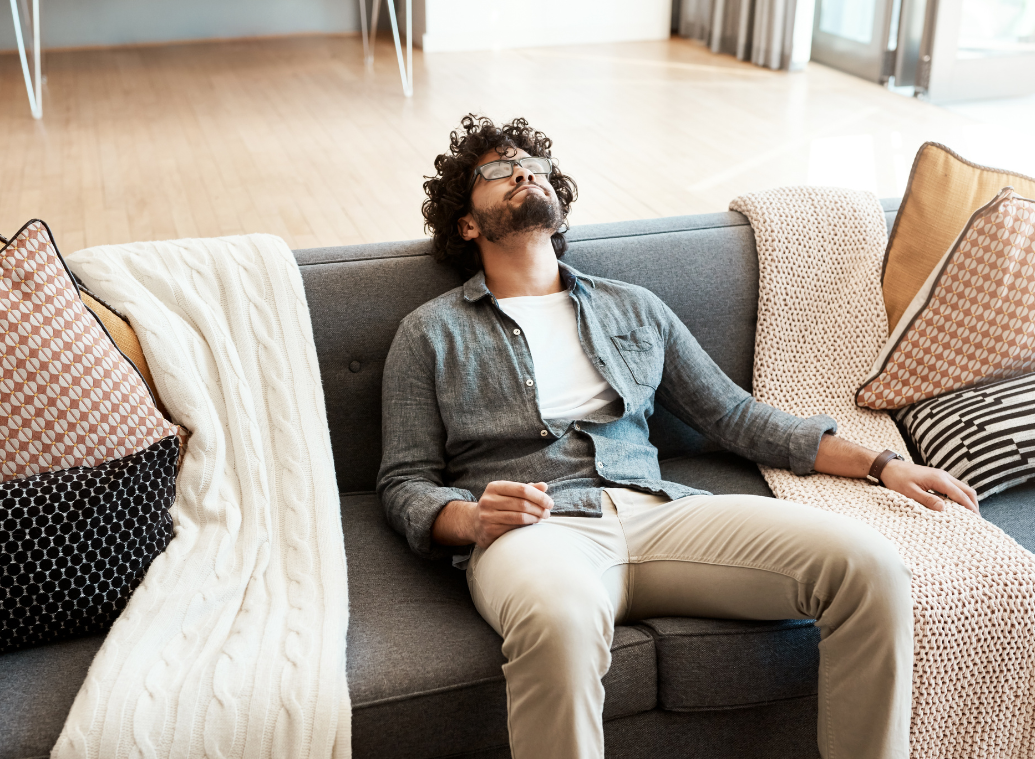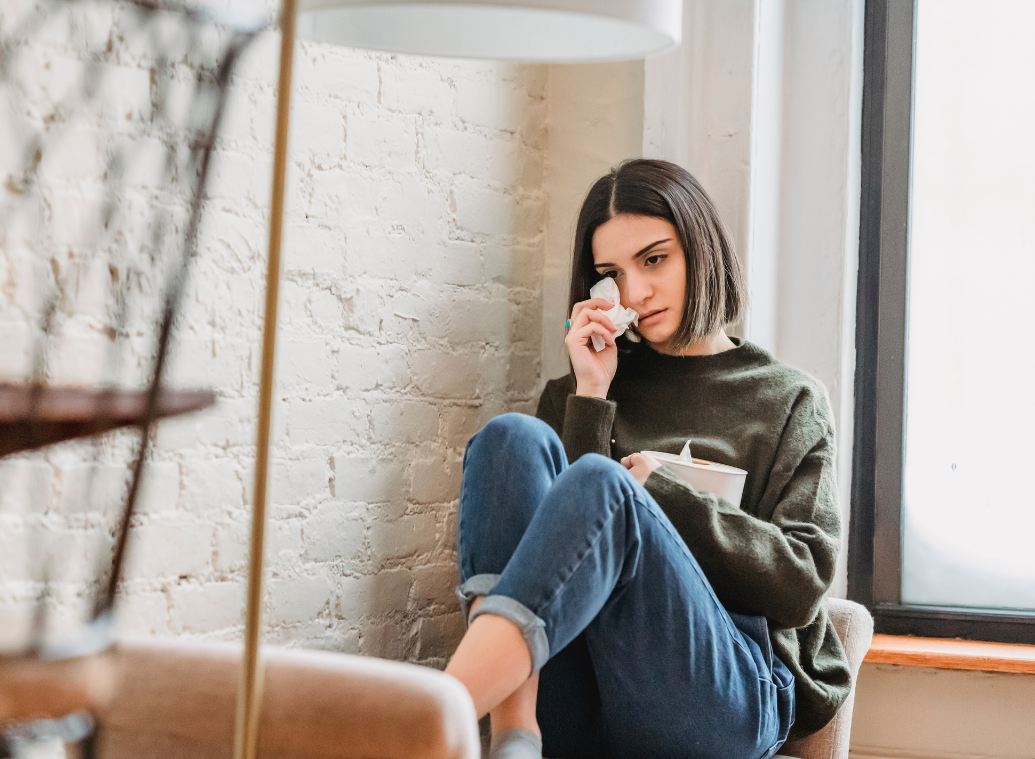- Home
- Share
- Forum
- General forums
- Living with rheumatoid arthritis
- Does your rheumatoid arthritis affect your sleep? Share your tips!
Does your rheumatoid arthritis affect your sleep? Share your tips!
- 59 views
- 2 times supported
- 7 comments
All comments

Lee__R
Community managerGood advisor
![]()
Lee__R
Community manager
Last activity on 04/03/2020 at 5:04 PM
Joined in 2018
1,337 comments posted | 44 in the Living with rheumatoid arthritis group
2 of their responses were helpful to members
Rewards
-
Good Advisor
-
Contributor
-
Messenger
-
Explorer
-
Friend
-
Top chef
Hello members, have you tried any of these recommendations? Any other tips to share for how to get a goods night sleep? Thought you would find this interesting and, thus, feel free to share and discuss below!
@CarolM @achy38 @karm!nR @Jucompton13 @rtr097u1 @Joemerrill @zrjsval @Mookie5000 @Kerri4 @mcheney1214 @Juliekay0804 @Coco1933 @Mbuletza @Jennylovescats @A.bach @dkaglear @lissjill55
![]()
achy38
Good advisor
![]()
achy38
Last activity on 02/26/2024 at 1:49 AM
Joined in 2018
32 comments posted | 21 in the Living with rheumatoid arthritis group
Rewards
-
Good Advisor
-
Contributor
-
Messenger
-
Explorer
@Lee__R Thank you for the tips! I enjoyed reading the article... I have trouble FALLING asleep with RA and I do CONTRIBUTE this to the pain and discomfort, but once I fall asleep ... I sleep.
One thing that has helped me is setting a routine and falling asleep at the same time every day. I also try heating up my joints... paraffin wax bath or heat towels on my joints ... which helps ease the discomfort and is soothing in it itself. It helps using it right before I am going to sleep.
![]()
zrjsval
Good advisor
![]()
zrjsval
Last activity on 06/16/2020 at 7:16 PM
Joined in 2018
8 comments posted | 5 in the Living with rheumatoid arthritis group
Rewards
-
Good Advisor
-
Explorer
I sleep best when I take a hot bath with Epsom salts and Lavender before going to bed. The earlier I go to bed when I begin to feel sleepy the better for some reason.
![]()
Libbys6611
![]()
Libbys6611
Last activity on 01/11/2024 at 6:09 PM
Joined in 2018
6 comments posted | 4 in the Living with rheumatoid arthritis group
Rewards
-
Explorer
A heated mattress pad is great and feels so good on aching legs

Lee__R
Community managerGood advisor
![]()
Lee__R
Community manager
Last activity on 04/03/2020 at 5:04 PM
Joined in 2018
1,337 comments posted | 44 in the Living with rheumatoid arthritis group
2 of their responses were helpful to members
Rewards
-
Good Advisor
-
Contributor
-
Messenger
-
Explorer
-
Friend
-
Top chef
@Libbys6611 what type or brand of heated mattress pad do you use?
![]()
Libbys6611
![]()
Libbys6611
Last activity on 01/11/2024 at 6:09 PM
Joined in 2018
6 comments posted | 4 in the Living with rheumatoid arthritis group
Rewards
-
Explorer
It’s a dual controlled mattress pad by Biddeford Blankets

Courtney_J
Community managerGood advisor
![]()
Courtney_J
Community manager
Last activity on 08/08/2022 at 11:09 AM
Joined in 2020
1,339 comments posted | 20 in the Living with rheumatoid arthritis group
6 of their responses were helpful to members
Rewards
-
Good Advisor
-
Contributor
-
Messenger
-
Explorer
-
Friend
Hello everyone,
Have you seen this older discussion? ![]()
Does your RA affect your sleep? If so, what do you do to sleep better? Do you have any tips to share?
@Cbeard4176 @DeannaH @Ydavy41 @Jabramo @bbyrd81451 @Jackiewoodstock @Nursenana @Yolande1970 @Kimika60 @Bsavage @nancydrew88 @RussSportsFan23 @Mband5003 @Monimac51 @Dlancrn @Steene @CatK2021
Feel free to share here!
Take care,
Courtney
See the signature
Courtney_J, Community Manager, Carenity US
Give your opinion
Survey
Articles to discover...

03/14/2025 | Nutrition
Carbohydrates: Friend or foe? Everything you need to know to make the right choices!
Subscribe
You wish to be notified of new comments
You have been subscribed







Lee__R
Community managerGood advisor
Lee__R
Community manager
Last activity on 04/03/2020 at 5:04 PM
Joined in 2018
1,337 comments posted | 44 in the Living with rheumatoid arthritis group
2 of their responses were helpful to members
Rewards
Good Advisor
Contributor
Messenger
Explorer
Friend
Top chef
People with rheumatoid arthritis may find that pain or discomfort prevents them from falling asleep. Not sleeping well can have an impact on the severity of a person's symptoms, as well as their general well-being. But there are some things that people can try that may help with sleep.
Pain, discomfort, and the side effects of medication can make it harder for a person with RA to fall asleep or stay asleep throughout the night.
According to the Centers for Disease Control and Prevention (CDC), adults over 18 should get a minimum of 7 hours of sleep per night. Getting less than this on a regular basis can have an impact on a person's health. Lack of sleep can make RA symptoms worse, and could lead to a flare-up of the disease. Fatigue can make the pain more difficult to manage.
RA and insomnia
RA can cause pain, which may cause stress or worry and prevent a person from getting to sleep. Some people may find that their symptoms cause them to wake during the night.
Some medications, such as prednisone and hydroxychloroquine, also have the side effect of causing sleeplessness. It is a good idea to take these drugs earlier in the day to reduce this effect.
Tips for dealing with insomnia
1. Exercising
Exercise can help a person sleep.
Gentle exercise is a meaningful way to reduce or improve RA symptoms. Exercise can also help a person to sleep and can improve mood and well-being.
The CDC recommend that a person does 2.5 hours of moderate exercise every week. However, people with RA should start slowly and build up the amount of activity they do according to their ability. It is better to do a small amount of exercise than nothing at all.
Walking, swimming, cycling, and stretching are all examples of exercise that will not put too much strain on the joints or the body.
Exercise can also help to keep joints flexible, which should improve the range of motion a person has in their joints. People should avoid activities that put too much pressure on the joints, for example twisting or jumping.
RA can also cause disability in the long-term and exercise can help to prevent or delay this.
2. Cutting out caffeine
Caffeine can stop people from falling asleep.
People with RA should avoid drinking caffeine late in the afternoon or evening if it is affecting their sleep.
It is possible to replace coffee or tea with decaffeinated versions or herbal teas. Watch out for hidden sources of caffeine, such as soda, energy drinks, and green tea.
3. Avoiding alcohol
Drinking alcohol in the evening can stop a person from falling asleep easily. It may also mean a person wakes during the night or does not sleep as deeply.
Drinking alcohol alongside some RA medications could also pose a health risk.
4. Trying not to nap
Some RA medication can cause drowsiness, and napping or falling asleep during the day can make it more difficult to sleep at night.
People should try to avoid taking a nap during the day for this reason. Getting some fresh air or doing stretching exercises can help a person feel less drowsy and avoid napping.
5. Relaxing
Living with RA can be stressful, and taking time to relax, particularly before trying to fall asleep, can help.
Try creating a bedtime routine that is the same every night. People may choose to read a book, light a candle, or play some quiet music.
Sometimes, when a person is trying to get to sleep, worries or concerns often intrude into their minds. Keeping a notepad or dictaphone by the bed to record these concerns can help keep them out of mind.
6. Practicing good sleep hygiene
Using good sleep hygiene practices can help a person get to sleep faster.
Sleep hygiene means adopting good habits for better sleep, including:
going to bed and getting up at the same time every day
making the bedroom a quiet, relaxing space
keeping the temperature cool in the bedroom
using a blackout blind to make sure the bedroom is dark enough to sleep
switching off electronic devices 30 minutes before getting into bed
Good sleep hygiene can help the body recognize when it is time for sleep. If a person is relaxed and has no distractions, they should be able to get to sleep faster.
7. Meditating
Research on mindfulness meditation suggests that it can help to treat insomnia.
Taking time to do a meditation exercise, such as focusing on breathing, can help to calm the mind and relax the body.
Meditating can make it easier to fall asleep, or help a person go back to sleep if they wake in the night.
8. Not overeating before bed
Going to sleep with a stomach that is too full can stop a person getting to sleep.
Try to eat at least a couple of hours before going to bed. Any snacks before trying to fall asleep should be light.
Do you have any tips to share about how you get to sleep?